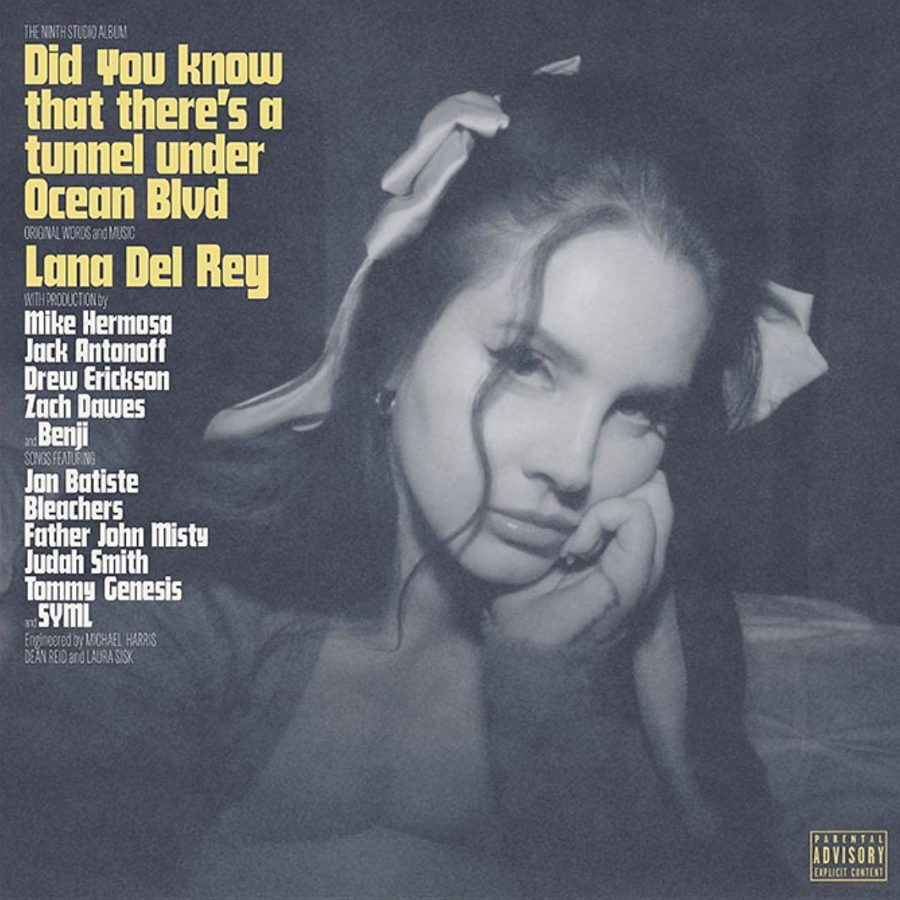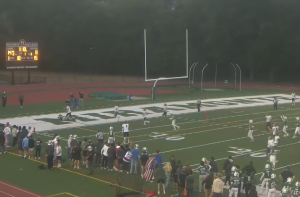Lana Del Rey’s “Did You Know There’s a Tunnel Under Ocean Blvd”: The Controversies and the Highlights
April 24, 2023
“Did You Know There’s A Tunnel Under Ocean Blvd,” the newest album from singer-songwriter Lana Del Rey is a chef d’oeuvre: a lyrical masterpiece. Throughout the album, she conveys her truest, most vulnerable thoughts. As Del Rey explores new sounds and instrumentals, each song tells a narrative worth hearing.
While the album’s title is a rhetorical question, there is indeed a tunnel under Ocean Blvd. The tunnel is located in Long Beach, California. Before reading the interview Del Rey had with Rolling Stone, I pictured the tunnel as the album itself, as tunnels are underground and Lana takes listeners past her surface level. “Would it be a worrisome concept to be boxed out and sealed up with all these beautiful things inside with no one able to gain access except maybe family?” said Del Rey in an interview with Rolling stone. She talks about perception of music, which sometimes is lost by listeners; her family always holds entry to this metaphorical (but also literal) tunnel.
In contrast to Del Rey’s previous albums centered on pop culture, this record’s lyrics bereave beloved relationships and family members. The intimacy in her lyrics and notes takes tender listeners like myself to a deep place she’s created: her metaphorical tunnel.
It would be unfair for me to confess my fondness for the album without discussing the elephant in her tracks: the religious overtones, which are especially prominent in the song “Judah Smith Interlude.” This song is a sermon Del Rey recorded in a church pew: a recording of a Judah Smith sermon plays, with piano accompaniment and Del Rey’s erratic giggles in the background.
The songwriter’s inclusion of religion in her album is questionable to some, since undevout topics aren’t uncommonly found in Del Rey’s lyrics. This doesn’t seem to be the only dispute, as Smith–a known preacher of the megachurch, Churchome, known to hold controversial stances on reproductive rights and homosexuality that he backs with his religious beliefs. Toward the end of the five-minute preaching, he says “I wish to think my preaching was mostly about you. And you’re not gonna like this but I’m going to tell you the truth. I’ve discovered my preaching is mostly about me.” The inclusion of a controversial pastor on her record causes many to question Del Rey’s intentions, especially since she has inspired controversy in the past.
This interlude should not be the only takeaway from the album. Much like the pastor says, his preaching is more for himself than for others, and Del Rey’s music is more for herself than others. While I don’t fully understand why Del Rey chose to endorse him, the last three sentences help put his sermon into context for me. Music can be interpreted in many ways, and it’s clear Del Rey makes intimate music for herself, to express her own identity – not to please.
Speaking of the highlights of the record, I had many favorite tracks. Some standouts were “The Grants”, “Let the light in”, and “Peppers.” I tend to lean towards her sentimental music, so I’m surprised by my affinity towards “Peppers.”
“The Grants” is the first song of the album. As Lana’s legal name is Elizabeth Woolridge Grant, the ballad is about her family. “My pastor told me/When you leave all you take/(Oh) is your memory,” sings Del Rey. She then continues to talk about memories, feelings, and people she will take with her to the grave. As I listen, I recollect on moments and I feel like I’m allowed in the metaphorical tunnel Lana has made. The chorus “I’m gonna take mine of you (her memory) with me,” feels like it would be played in the back of an Oscars memoriam.
As the songs prior to “Let The Light In,” touch on grievances, the track literally brings light into the album. While the song still contains a somber undertone, it feels light and fun. Her and musical artist Father John Misty share choruses in the song that coincide beautifully.
In the fifteenth track, “Peppers,” Del Rey sings: “Me and my boyfriend listen to the Chilli Peppers/We write hit sounds without trying.” These lyrics connect back to an experience in a relationship she sang about in her song from a past album, “The Next Best American Record.” I thought it was interesting that she chose to talk about the same relationship in a different light, like she is looking in retrospect.
“I genuinely really liked the album and thought it veered away from her previous style. Something kind of different about it is that most of the songs were instrumentals. My favorite songs were ‘Paris, Texas’ and ‘Taco Truck x VB’,” said sophomore and Del Rey stan Komal Auijla.








